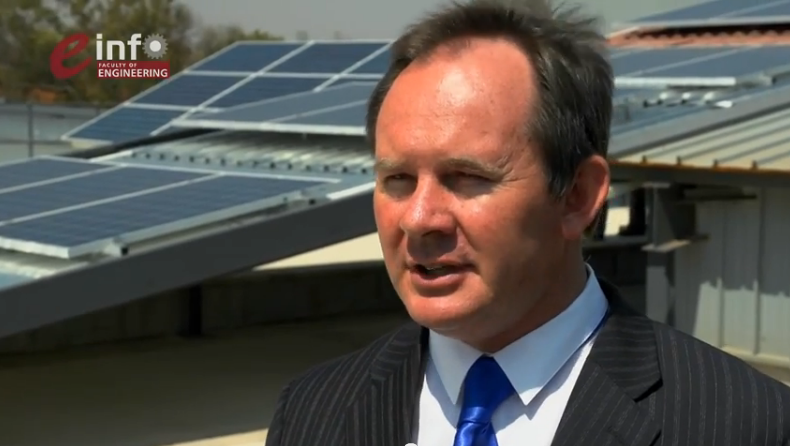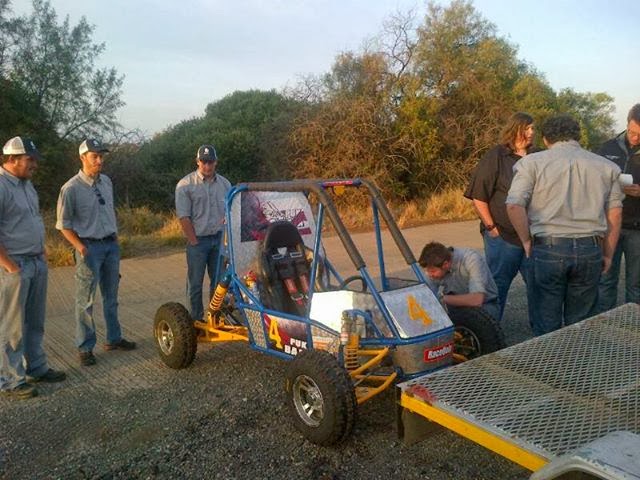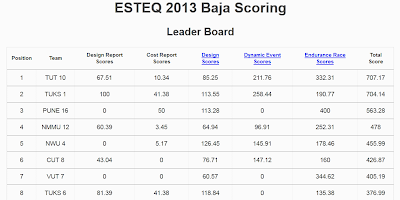Innovation could be the gateway towards a better future in South
Africa. New and better products, improved services, and ground-breaking
new methods could be the driver of wealth if harnessed and developed.
Innovation can also lead to new businesses and improved employment
opportunities.
Engineering students and staff at the North-West University are
collaborating with companies on a number of high-tech projects,
developing new products and solving difficult problems. The aim is to
make South African companies more competitive and profitable, by
leveraging the expertise available at the university, and unlocking the
potential of post-graduate students.
The Innovation Support Office in the faculty of Engineering at the
Potchefstroom campus employs a team of dedicated project managers that
assists companies in identifying suitable government funding support
programmes; assist in writing project proposals and managing projects
towards successful completion. The Innovation support office also helps
companies in identifying expertise at universities, and can help in
building networks of expertise in order to solve multidisciplinary
industrial problems.
For example: Students from the North West University, the Nelson Mandela
Metropolitan University and the University of Pretoria, are now part of
a unique research team that is supporting development work in
collaboration with Denel Aviation. In the same way, groups of engineers,
researchers and students are collaborating with companies as diverse as
Necsa, MTech Industrial, and numerous small businesses.
André Hattingh from the Innovation Support Office at the Faculty of
Engineering, NWU, says the Engineering Faculty received around R32
million from the government to support various industry initiated
projects. The Technology and Human Resource for Industry Programme
(THRIP) was specifically developed by the government to promote
cooperation between universities and the industry. The purpose of this
funding is to tackle projects of which research inputs can be beneficial
to the different industries. Cooperation is therefore mutually
beneficial for universities as well as for the company because our
postgraduate students get research opportunities, and the company can
implement the expertise gained from it.
One of the main benefits for a company to collaborate in state sponsored
programmes such as THRIP is that it can develop a long-term strategic
relationship with a university research group, leading to a continued
output of ideas, educated students, and artefacts. Dedicated
laboratories, with expensive test and measurement equipment can also be
developed that can support both strategic directed research as well as
blue sky research. The research done in a THRIP project usually leads to
a prototype which could then be further developed by using one of the
Technology Innovation Agency (TIA) support programmes.
 |
| André Hattingh |
The Innovation support office currently manages more than seventeen
projects. More than eighty students from different universities are
financially supported and more than twenty companies are involved. Most
of these students are post-graduate students, working on industry linked
projects. Students working on these projects acquire relevant skills
because of the continual technology transfer between university and
industry and are more ready for the place of work after graduating.
For more info contact André Hattingh at 018 299 4023, 0833778581 agh@mweb.co.za
2013/06/03
See original news article at:
http://mg.co.za/article/2013-05-31-00-innovation-in-action-at-nwu
http://potchnews.nwu.ac.za/n/126



















